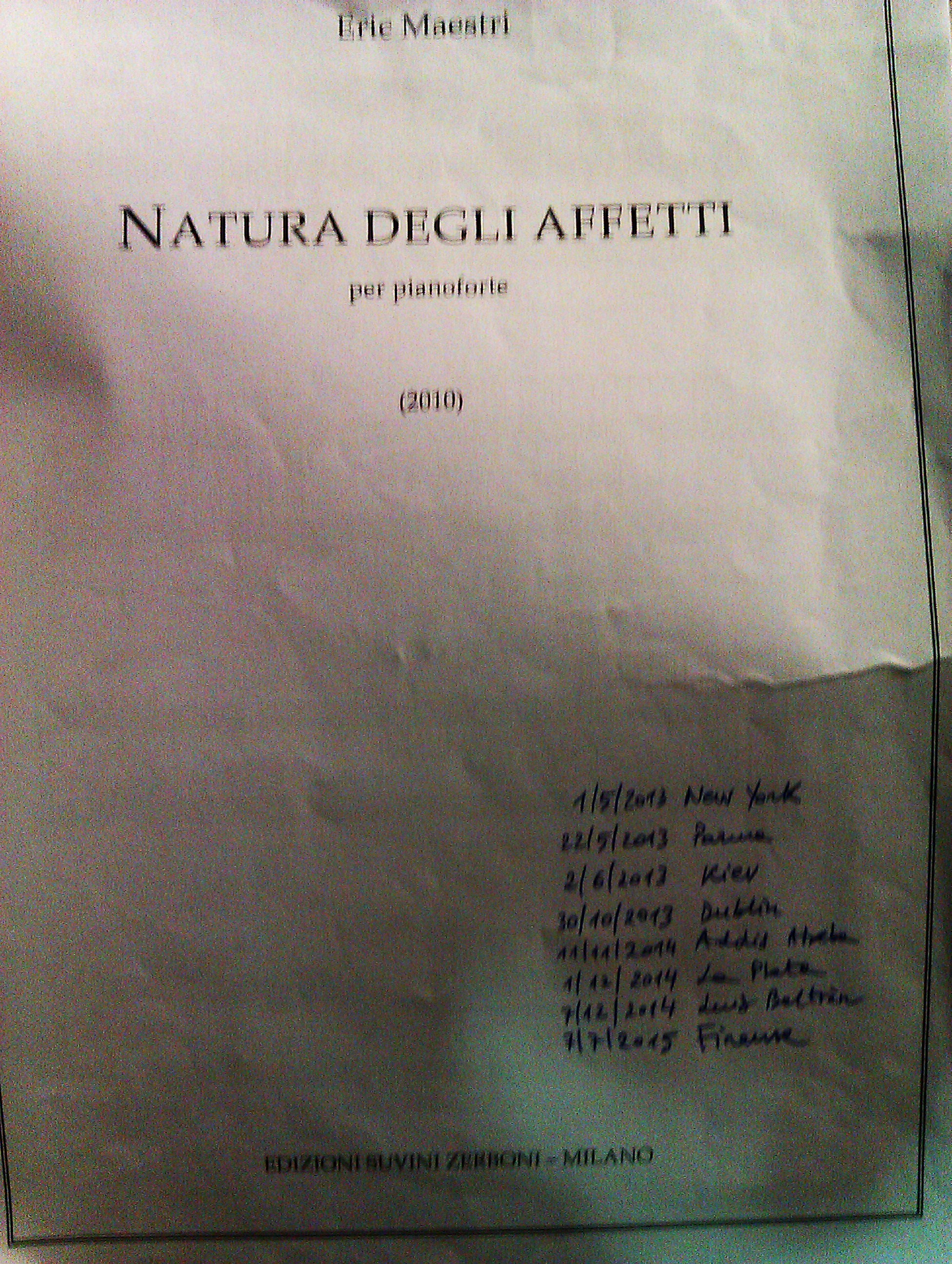Calendar
|
|||||||||
| Mo | Tu | We | Th | Fr | Sa | Su | |||
| 1 | 2 | 3 | |||||||
| 4 | 5 | 6 | 7 | 8 | 9 | 10 | |||
| 11 | 12 | 13 | 14 | 15 | 16 | 17 | |||
| 18 | 19 | 20 | 21 | 22 | 23 | 24 | |||
| 25 | 26 | 27 | 28 | ||||||
Calendar by Kieran O'Shea

Natura degli affetti (2010) 6′
for piano
piano, Emanuele Torquati
[it] Natura degli affetti si riferisce al filosofo Spinoza. Nell’Etica Spinoza spiega la “natura degli affetti” in maniera razionale facendo riferimento all’istinto vitale. Ora, la cosa che mi interessa è lo sguardo che Spinoza porta. In questo brano un gruppo di note, un gesto pianistico è analizzato, osservato tramite la ripetizione; è come se fosse sottratto al tempo per essere osservato in maniera astratta tramite la sua variazione prima minima e poi più approfondita, fino a farlo sparire completamente per ritornarci, per provarne la consistenza, l’essenza. In questo modo l’osservazione tramite la variazione diventa un viaggio libero tramite prospettive contrastanti all’interno dell’idea iniziale; un viaggio che poi, a un certo punto, si interrompe, ma che potrebbe continuare molto piacere a lungo.
[en] Natura degli affetti refers to the philosopher Spinoza. In the Etica Spinoza explains the “nature of affections” in a rational way referring to the vital instinct. Now, what interests me is the glance that Spinoza brings. In this piece a group of notes, a piano gesture is analyzed, observed through repetition; it is as if it were subtracted from time to be observed in an abstract way through its variation first minimal and then deeper, until it disappears completely to return to it, to prove its consistency, its essence. In this way the observation through variation becomes a free journey through contrasting perspectives within the initial idea; a journey which then, at a certain point, is interrupted, but which could continue very pleasantly for a long time.